
Oryx
Safari in National Parks: Lake Manyara, Serengeti and Ngorongoro Crater
This enriching five-day program offers you a unique opportunity to witness the transformation of Lake Manyara, which, depending on the season, can attract numerous colonies of pink flamingos. Despite its ever-changing nature, this place never fails to amaze with its natural beauty. You will witness the life of wild animals in the pristine Ngorongoro Crater and uncover the secrets of the vast Serengeti savannas. Throughout your journey, you will surely have the chance to encounter the iconic African Big Five (elephant, buffalo, leopard, rhinoceros, and lion), as well as giraffes, hippos, cheetahs, zebras, ostriches, jackals, mongooses, and many other species. Additionally, depending on the season, Tanzania might bless you with the unforgettable sight of the great wildebeest migration, as the herds move across the vast expanse of the Serengeti.
Safari Tour "Oryx" Price
 Safari tour Oryx
Price per person
Safari tour Oryx
Price per person
 Safari tour Oryx
Price per person
Safari tour Oryx
Price per person
"Oryx " Safari Itinerary
The group arrives at Kilimanjaro Airport (JRO). Participants are met by a representative of Altezza Travel and transferred to a hotel in Arusha.
Note:The hotel cost only includes breakfast. Check-in starts at 2:00 PM.
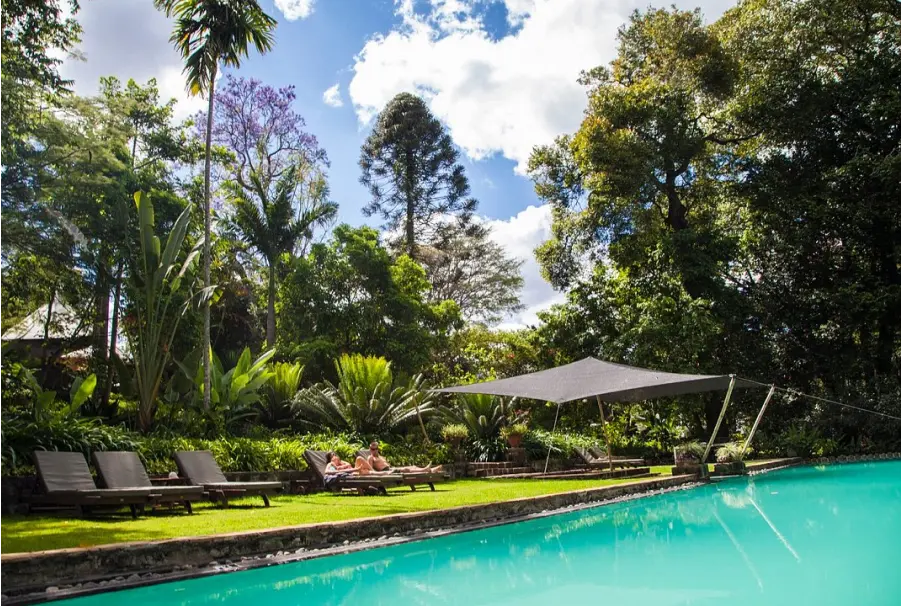
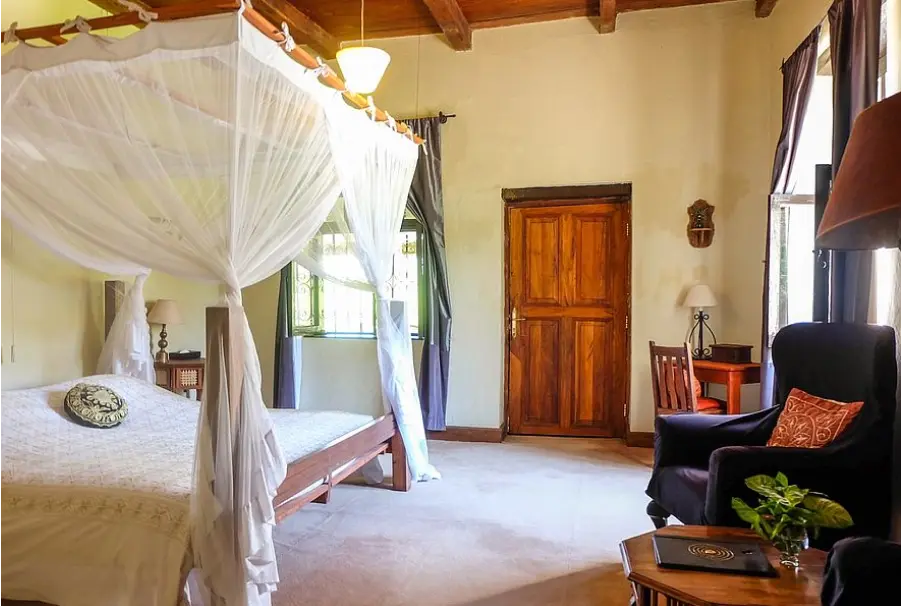
Located on the slopes of Mount Meru, Ngare Sero Mountain Lodge is perfectly suited for exploring the natural beauty of East Africa. The main house is one of the oldest family cottages in Arusha: it was built at the beginning of the 20th century and still retains many features of the original style. Kilimanjaro International Airport is just 27 kilometers (17 miles) away, making the lodge an excellent place for overnight stays between climbing and safaris.
A respectful attitude towards historical heritage is combined at Ngare Sero Mountain Lodge with modern standards of comfort and hospitality. Each room features comfortable wide beds with carved headboards and anti-mosquito canopies, large baths to relax in after a busy day on safari, solid wood furniture, lamps, sockets, Wi-Fi, and everything needed for rest and relaxation.
Long verandas in colonial style stretch along the facade of the house. Sitting in chairs with long armrests, it's pleasant to admire the lake, greenery, and gardens. And when the clouds dissipate, one can see the majestic Mount Kilimanjaro.
The property has an outdoor pool with sun loungers and a spa center where guests can book a massage session or other self-care treatments. There is also a bar and restaurant. Breakfast, lunch, and dinner can be enjoyed in the dining room with an open veranda, in the dining area, or in a secluded pavilion by the lake.
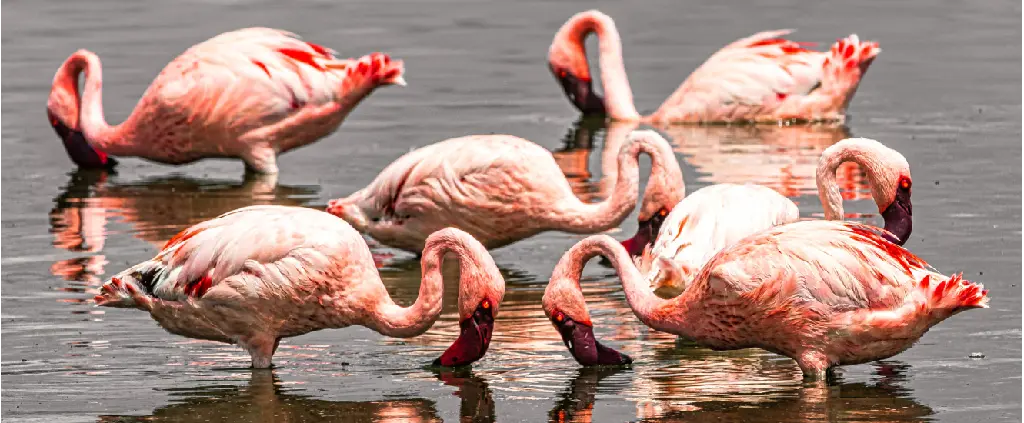
In the morning, after breakfast (around 7:30 AM), your safari guide will arrive at the hotel and inform the receptionist that he is waiting for you. After meeting your driver, you will travel to Lake Manyara National Park, and by 10:00 AM, you'll already be on your first safari!
The entire park is cut through with groundwater streams, creating a favorable environment for plant life, and as a result, attracting a variety of birds (including pink flamingos) and African forest animals.
Around lunchtime, you will visit the Maji Moto hot springs, where the driver will provide you with personal lunchboxes. After this stop, the safari will continue, and by evening, you will be transferred to your hotel to get ready for the amazing drive to Ngorongoro the next morning.
Additional notes:
This is your first day on safari, so we kindly ask that you pay special attention to the national park visitor rules and our company’s recommendations:
- It is strictly prohibited to exit the vehicle during the safari, except in designated areas. Violating this rule may result in significant fines for the company, including the revocation of its license.
- Off-road driving is also prohibited as it can cause irreparable damage to the delicate balance of the park's ecosystem.
- Smoking is allowed during the safari, but please be extremely careful when extinguishing and disposing of cigarette butts, as they are a frequent cause of fires in the savanna.
- We kindly ask that you do not put your feet on the seats or sit on the backs of the safari vehicle’s seats, as such behavior quickly damages the vehicle.
Thank you in advance for your understanding!
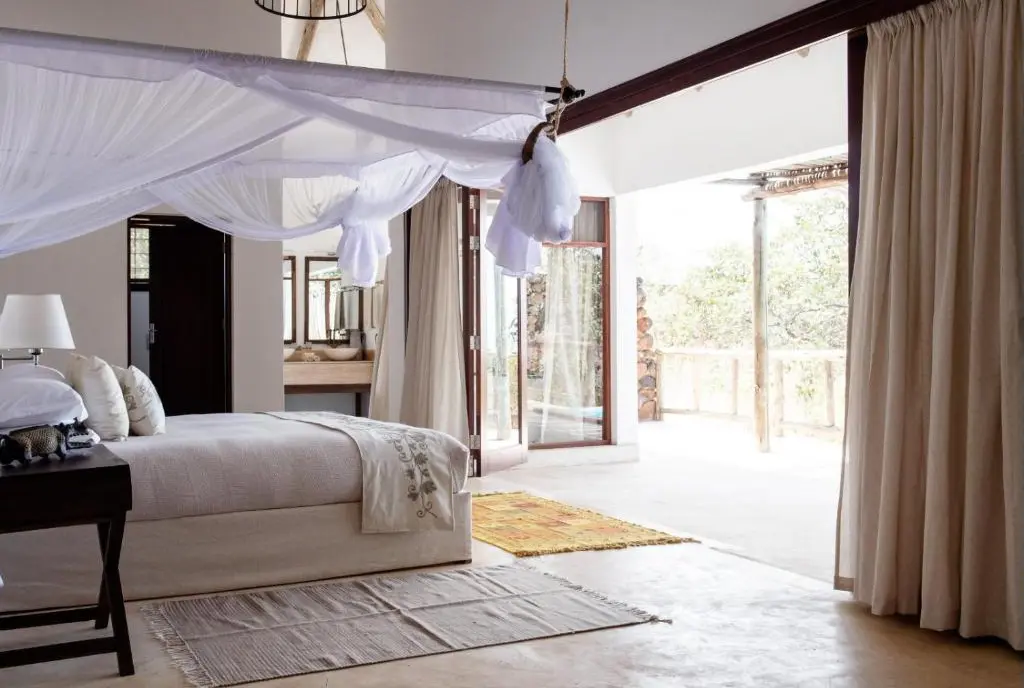
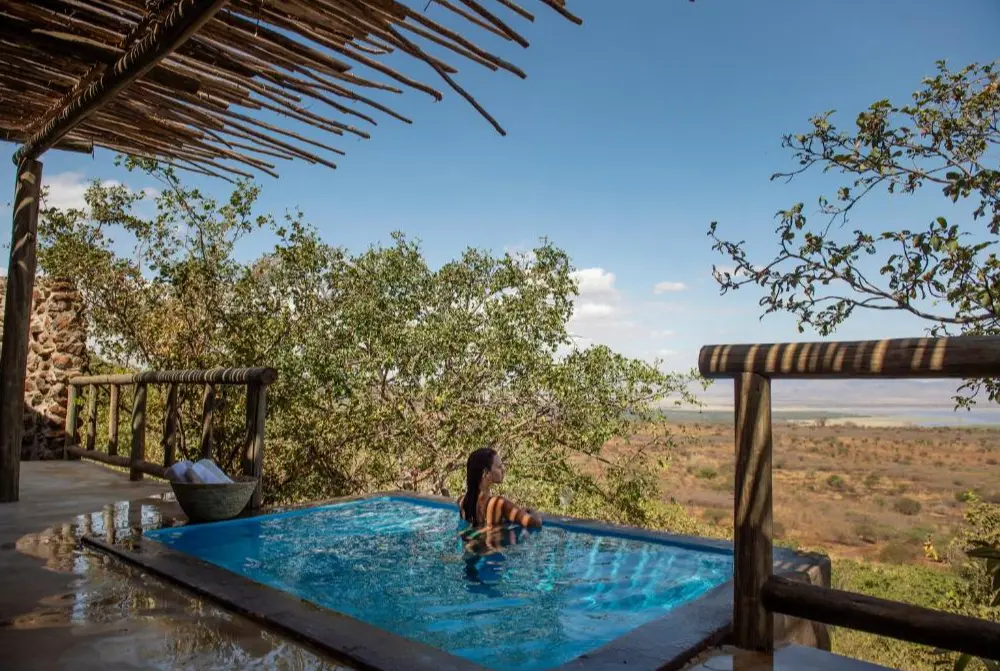
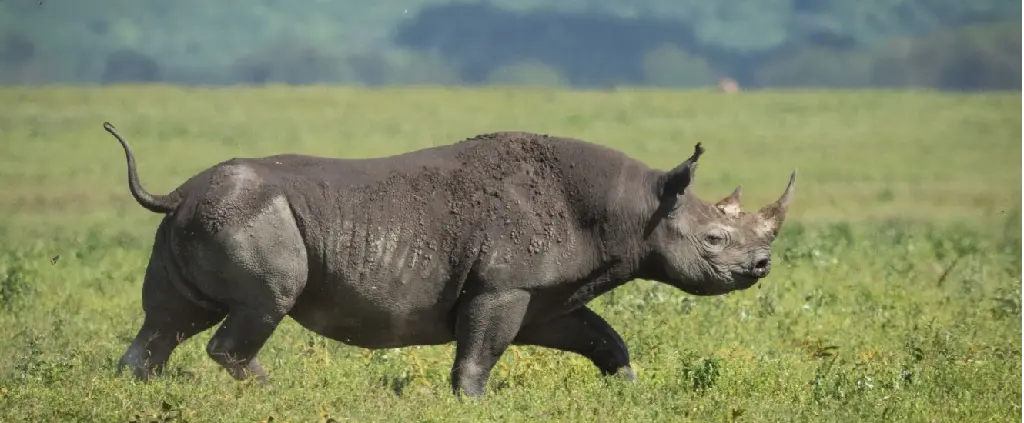
On this day, it is best to leave the hotel as early as possible to maximize your chances of seeing the animals that are most active in the morning. Depending on whether you’d like to extend your safari time, breakfast can either be served at the hotel or packed in lunchboxes for you to enjoy on the go. At 7:00 AM, you will depart for Ngorongoro Conservation Area, and after about an hour, you will enter the crater.
Ngorongoro is one of the most famous and fascinating national parks in Tanzania, as it is home to the highest concentration of animal species per square kilometer. During your visit, you’ll have the chance to see buffalo, elephants, lions, wildebeests, zebras, hippos, and feline species like caracals and servals. The luckiest travelers may even spot a rhinoceros, whose population is rapidly declining.
By lunchtime, you will arrive at the lakeside, where you will be offered lunchboxes. Afterward, the safari will continue, and a few hours later, you will be transferred to Serengeti National Park.
Along the way, you can visit a memorial dedicated to two West German researchers, Bernhard and Michael Grzimek. Thanks to their efforts, Northern Tanzania's National Parks have survived in their natural state until today. You can read their full story in the book "Serengeti Shall Not Die", available on Amazon.com for USD 10–25.
In the evening, you will be transferred to a hotel located in the heart of the Serengeti Valley.
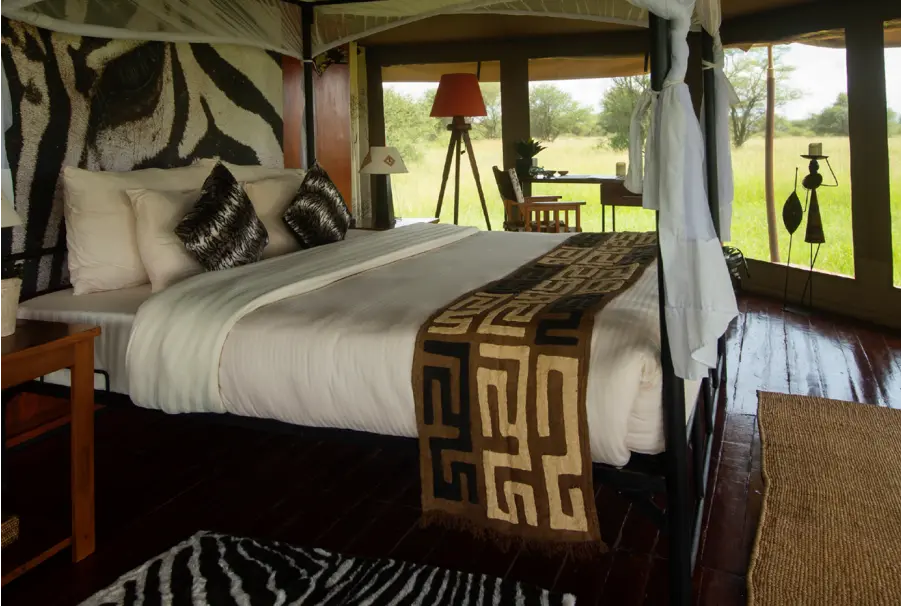
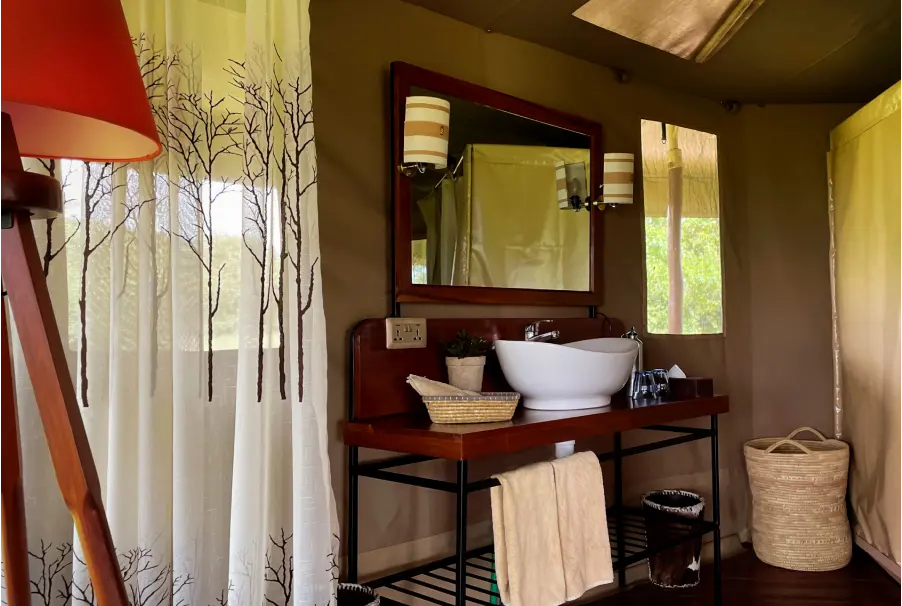
The Sound of Silence, a luxurious camp, abides by the motto coined by its founder, Jan Franken: "The eye never forgets what the heart has seen." This ethos drives the team to craft an unforgettable experience for guests, blending impeccable service and modern comforts with a deep connection to nature. While offering upscale amenities, the camp preserves a symbiotic relationship with the wilderness, ensuring guests remain immersed in their surroundings without overwhelming urban luxuries, all while ensuring their stay is as convenient as possible.
The Sound of Silence tented camp is located in the heart of Serengeti National Park. Spacious tents (50 sq. m/538 sq. f) are set on elevated wooden platforms. Each tent has its own bathroom with all amenities; hot and cold water, king-size beds, fine linens, down blankets, mattresses ensuring comfortable sleep, fans, 24-hour electricity from solar power stations, British-style sockets, and stable Wi-Fi. Being in the center of Serengeti allows guests to immerse themselves in the amazing world of Tanzanian nature right from their own terrace: even from here, you can see antelopes and zebras wandering through the campsite.
Guests have access to a bar and restaurant with an A la Carte menu (during booking, the camp team can be informed about any dietary restrictions and allergies). Many ingredients are delivered fresh daily. For breakfast - For those going on safari, guests will be offered delicious and nutritious lunch boxes. Dinner is in a relaxed atmosphere, to enjoy the night sounds and sights. Coffee, tea, and refreshing drinks are available throughout the day, as is a light snack menu.
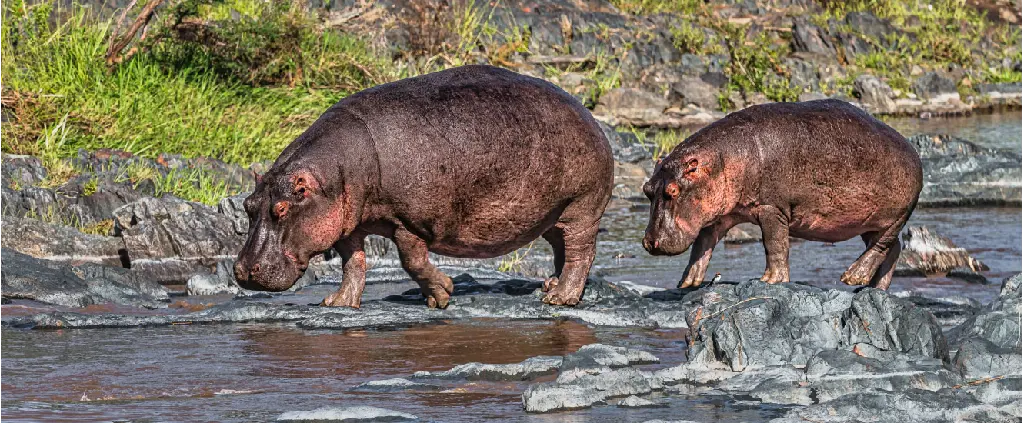
Today you will go to the most famous safari park in the world - Serengeti. This is one of the largest parks in Tanzania and has a large population of wildlife. Here, you are sure to see: lions, antelopes, elephants, giraffes, buffaloes and zebras. There is a good chance of spotting cheetahs, serval cats and other rare animals of the African savannah. The Serengeti is a designated UNESCO World Heritage Site, chosen because of its important ecosystem, the dense population of animals and the annual Great Migration. Serengeti was the inspiration for Disney’s “Lion King” feature film, but life here is not a cartoon - it is pure, wild and beautiful. The day will take place in the central Serengeti, in a remarkably beautiful area called Seronera.


The Sound of Silence, a luxurious camp, abides by the motto coined by its founder, Jan Franken: "The eye never forgets what the heart has seen." This ethos drives the team to craft an unforgettable experience for guests, blending impeccable service and modern comforts with a deep connection to nature. While offering upscale amenities, the camp preserves a symbiotic relationship with the wilderness, ensuring guests remain immersed in their surroundings without overwhelming urban luxuries, all while ensuring their stay is as convenient as possible.
The Sound of Silence tented camp is located in the heart of Serengeti National Park. Spacious tents (50 sq. m/538 sq. f) are set on elevated wooden platforms. Each tent has its own bathroom with all amenities; hot and cold water, king-size beds, fine linens, down blankets, mattresses ensuring comfortable sleep, fans, 24-hour electricity from solar power stations, British-style sockets, and stable Wi-Fi. Being in the center of Serengeti allows guests to immerse themselves in the amazing world of Tanzanian nature right from their own terrace: even from here, you can see antelopes and zebras wandering through the campsite.
Guests have access to a bar and restaurant with an A la Carte menu (during booking, the camp team can be informed about any dietary restrictions and allergies). Many ingredients are delivered fresh daily. For breakfast - For those going on safari, guests will be offered delicious and nutritious lunch boxes. Dinner is in a relaxed atmosphere, to enjoy the night sounds and sights. Coffee, tea, and refreshing drinks are available throughout the day, as is a light snack menu.
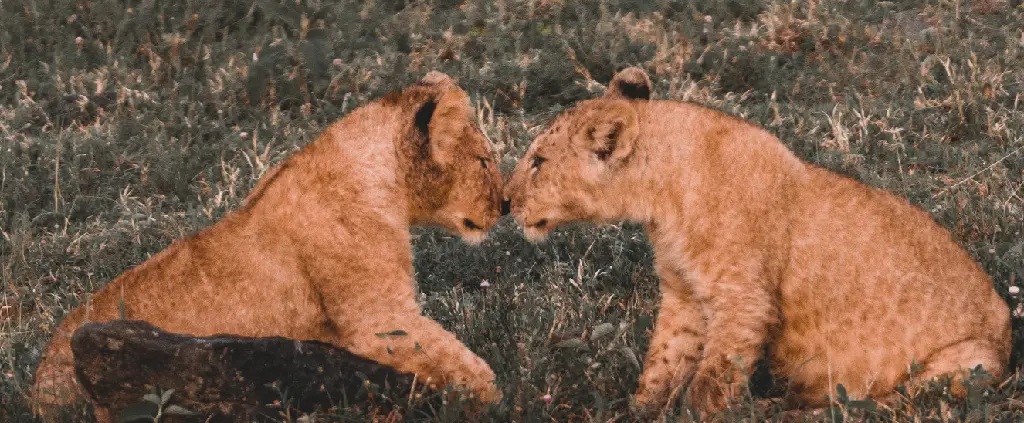
Your adventure continues in the central part of the Serengeti. Seronera is a huge space, brimming with life. It is impossible to view it all in one day; today, your guide will show you new places and interesting animals, so that you can get a full perspective of Serengeti’s Seronera. It is in the Serengeti that the rarest African animals live: rhinos, leopards, serval cats and caracals. This second day increases your chances of seeing these rare animals in the wild.


The Sound of Silence, a luxurious camp, abides by the motto coined by its founder, Jan Franken: "The eye never forgets what the heart has seen." This ethos drives the team to craft an unforgettable experience for guests, blending impeccable service and modern comforts with a deep connection to nature. While offering upscale amenities, the camp preserves a symbiotic relationship with the wilderness, ensuring guests remain immersed in their surroundings without overwhelming urban luxuries, all while ensuring their stay is as convenient as possible.
The Sound of Silence tented camp is located in the heart of Serengeti National Park. Spacious tents (50 sq. m/538 sq. f) are set on elevated wooden platforms. Each tent has its own bathroom with all amenities; hot and cold water, king-size beds, fine linens, down blankets, mattresses ensuring comfortable sleep, fans, 24-hour electricity from solar power stations, British-style sockets, and stable Wi-Fi. Being in the center of Serengeti allows guests to immerse themselves in the amazing world of Tanzanian nature right from their own terrace: even from here, you can see antelopes and zebras wandering through the campsite.
Guests have access to a bar and restaurant with an A la Carte menu (during booking, the camp team can be informed about any dietary restrictions and allergies). Many ingredients are delivered fresh daily. For breakfast - For those going on safari, guests will be offered delicious and nutritious lunch boxes. Dinner is in a relaxed atmosphere, to enjoy the night sounds and sights. Coffee, tea, and refreshing drinks are available throughout the day, as is a light snack menu.
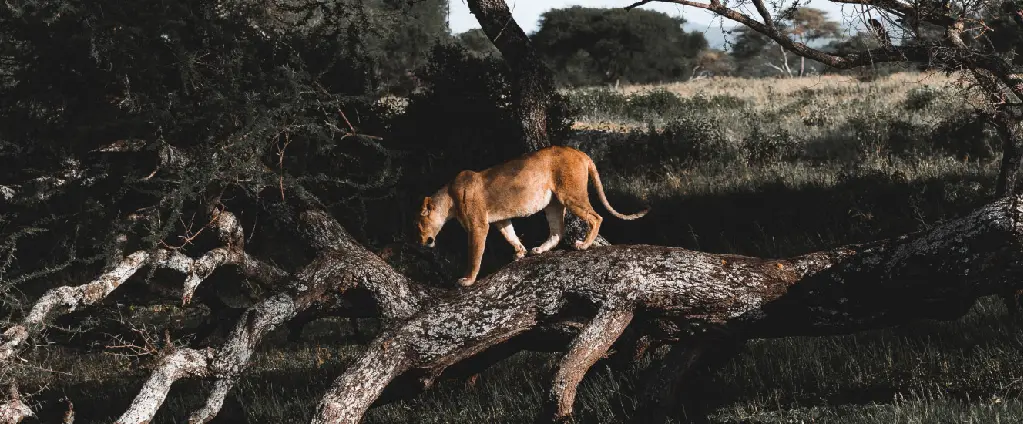
This is your final day in central Serengeti. Every day in the savannah provides something new and exciting, you will not have a repeat of previous days, but will experience something genuinely new: yesterday’s lazy lions might be on the prowl today, elephants that walked away will be curious today. It is also an excellent chance to see the famous Kopjes - these remnants of volcanic rock from ancient eruptions are a picturesque part of the Seronera landscape. Animals love to rest in their shade, providing ideal photographs of your time in Central Serengeti.
You’ll also see the Simba Rock - Remember the opening scene of “The Lion King” where Mufasa lifts up baby Simba to see all the savannah? Well, you can see it in real life! In Seronera, visit the inspiration for The Lion King, and see the exact rock that was copied for the cartoon.


Located on the slopes of Mount Meru, Ngare Sero Mountain Lodge is perfectly suited for exploring the natural beauty of East Africa. The main house is one of the oldest family cottages in Arusha: it was built at the beginning of the 20th century and still retains many features of the original style. Kilimanjaro International Airport is just 27 kilometers (17 miles) away, making the lodge an excellent place for overnight stays between climbing and safaris.
A respectful attitude towards historical heritage is combined at Ngare Sero Mountain Lodge with modern standards of comfort and hospitality. Each room features comfortable wide beds with carved headboards and anti-mosquito canopies, large baths to relax in after a busy day on safari, solid wood furniture, lamps, sockets, Wi-Fi, and everything needed for rest and relaxation.
Long verandas in colonial style stretch along the facade of the house. Sitting in chairs with long armrests, it's pleasant to admire the lake, greenery, and gardens. And when the clouds dissipate, one can see the majestic Mount Kilimanjaro.
The property has an outdoor pool with sun loungers and a spa center where guests can book a massage session or other self-care treatments. There is also a bar and restaurant. Breakfast, lunch, and dinner can be enjoyed in the dining room with an open veranda, in the dining area, or in a secluded pavilion by the lake.
Rest in the hotel and transfer to the airport.
Note: Hotel check-out is at 10:00 AM. In case you need a late check-out before your evening flight, you have the option to extend your hotel stay for an extra fee. Let your manager know in advance if you need a late check-out.
 Safari Cost Includes
Safari Cost Includes
Transfers
- All transfers described on the program
Accommodation & Meals
- Hotels and lodges described on the program
- Meals described on the program
- Bottled water, soft drinks, hot coffee and tea while in the jeep on safari
Guiding & Game-Driving
- Certified and experienced English-speaking safari guide
- Comfortable Land Cruiser 4x4s with pop-up roof, fridge, Wi-Fi, and power outlets
- National park fees for the entire tour (park entry fees and concession fees)
- Free Wi-Fi. Signal will be available in only 60-75% of the travelled territories due to lack of cell coverage in the wilderness areas
- 24/7 phone support service
- Air Ambulance Service by AMREF Flying Doctors
- Binoculars (1 pc per SUV)
- Medical kit
 Safari Cost Excludes
Safari Cost Excludes
- Air tickets;
- Visa fee;
- Travel insurance;
- Tips to your safari guide ($30-50 per day per car).
Please note:
- By default our tours include shared accommodation in twin/double rooms, unless requested and agreed otherwise. Single supplement is available upon request. Please refer to the program to see your accommodation arrangements
- Moshi and Arusha-based accommodations usually include breakfast only, unless requested and agreed otherwise. Please refer to the program to see your meal plans on each night
- Most safari lodges usually do not include tea, coffee, soft and alcoholic drinks not to have you overpay for beverages you don't need. You will be able to order and pay for drinks at the hotels' restaurants
- Tented lodges are the most common type of accommodation in savannah. Many of them work on solar energy. This sometimes means bucket showers, limited wi-fi and no hair dryers, all in an effort to reduce environmental impact. We encourage you to do some basic research on the accommodations in your program to ensure the safari matches your travel style

















 View All Tours
View All Tours